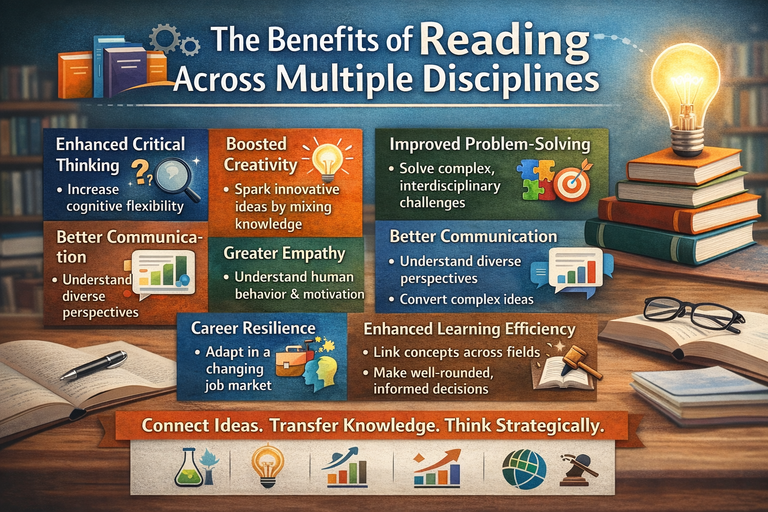Sports and Social Justice in Recent Literary Works
In recent years, literature has become an increasingly powerful platform for addressing complex issues of social justice, and sports narratives have emerged as a particularly dynamic space where these themes converge. From racial inequality to gender discrimination, immigrant experiences to economic injustice, sports in fiction and nonfiction now often serve as a lens through which broader societal tensions are explored and critiqued.
This blog post explores how recent literary works—spanning fiction, memoir, and young adult genres—use sports to engage with pressing social justice themes, amplifying marginalized voices and challenging traditional narratives in both the literary and athletic arenas.
Why Sports? The Perfect Arena for Justice Conversations
Sports have always had an outsized role in culture, representing both the ideal of meritocracy and the reality of exclusion. The field, court, or track becomes a metaphorical stage where dreams, struggles, and social dynamics play out.
In literature, this intersection provides a compelling narrative arc: the athlete as underdog, outsider, or activist. Writers are using sports settings not just for action, but to unpack the power structures that shape who gets to compete—and who gets to win.
Memoirs and Biographies as Testimonies of Resistance
Recent memoirs by athletes are no longer just about victories and statistics. They delve deep into issues of identity, activism, and protest, offering personal perspectives on the challenges faced by athletes of color, LGBTQ+ athletes, women, and others who defy the norms of traditional sports institutions.
Examples include:
-
“Rise: My Story” by Lindsey Vonn – Addresses the gendered pressure in professional skiing and body image in media representation.
-
“One Life” by Megan Rapinoe – Combines soccer stardom with LGBTQ+ rights and the fight for equal pay.
-
“Carry On: Reflections for a New Generation” by John Lewis (with Kabir Sehgal and Andrew Aydin) – Though not strictly a sports memoir, includes reflections on the cultural impact of athletes who protested for justice, like Muhammad Ali and Colin Kaepernick.
These books perform dual roles: inspiring sports stories and critical political memoirs.
Young Adult Fiction: Accessible and Impactful
YA authors are increasingly writing sports-themed novels that center on social inequality, racial profiling, and activism. These books often feature teen athletes struggling not just to make the team—but to make their voices heard.
Key titles include:
-
“Blacktop” series by LJ Alonge – A diverse cast of Oakland teens navigate basketball, friendship, and social pressure.
-
“Dragon Hoops” by Gene Luen Yang – A graphic novel that explores basketball, immigration, racism, and the personal courage to tell difficult truths.
-
“The Final Four” by Paul Volponi – Follows four players in a high-stakes college basketball game, highlighting themes of race, education, and ambition.
YA sports fiction has become a vehicle for educators and parents to start meaningful conversations with teens about justice, diversity, and equity.
Fictional Novels that Blur the Line Between Sports and Protest
In literary fiction, the sports figure is often reimagined as a symbol of societal resistance. Novels no longer portray athletes simply as celebrities or heroes—they are symbols of social transformation, sometimes even reluctant ones.
Notable examples:
-
“The Vanishing Half” by Brit Bennett – While not primarily a sports novel, the book includes athleticism as part of identity exploration and racial passing.
-
“Beartown” by Fredrik Backman – Uses hockey in a small Swedish town to unpack themes of sexual assault, community silence, and toxic masculinity.
-
“We Ride Upon Sticks” by Quan Barry – A quirky novel about a girls’ field hockey team in the 1980s that critiques gender expectations, witch hunts (literal and metaphorical), and power.
These stories use sports not as a backdrop, but as a central metaphor for justice, identity, and resistance.
The Athlete as Activist: A Literary Archetype Evolves
The archetype of the activist athlete has evolved in literature alongside real-world figures like Colin Kaepernick, Serena Williams, and Naomi Osaka. Books are now less interested in purely physical triumph and more focused on the athlete’s moral and cultural battles.
Literary characters are shown:
-
Taking a knee during national anthems
-
Refusing to compete due to institutional injustice
-
Fighting for teammates’ rights across lines of race, gender, and class
These fictional portrayals parallel real-life protest movements like #BlackLivesMatter, #MeToo, and #EqualPay, demonstrating the politicization of sports both on and off the page.
Intersectionality in Sports Literature
A powerful trend in recent works is the emphasis on intersectionality—how various forms of discrimination overlap within the life of one character. For example:
-
Queer athletes of color facing homophobia and racism
-
Women in hijabs dealing with religious bias in competitive environments
-
Disabled athletes navigating access, media bias, and inspiration narratives
Authors are intentionally crafting characters whose struggles in sports reflect broader cultural oppressions, making their wins feel personal—and deeply political.
Children’s Books and Picture Books: Early Lessons in Justice
Even picture books are now engaging with justice through sports. Illustrated stories about legendary or underrepresented athletes teach kids that the game isn't always fair—but fighting for fairness is part of the game.
Books like:
-
“Salt in His Shoes: Michael Jordan in Pursuit of a Dream” by Deloris Jordan
-
“Wilma Unlimited” by Kathleen Krull
-
“I Am Billie Jean King” by Brad Meltzer
These stories introduce young readers to concepts like persistence, inequality, and protest, framed in age-appropriate ways.
Publishing Houses and the Push for Equity
The surge in socially conscious sports literature also reflects changes within the publishing industry itself. More publishing houses—especially imprints focused on diverse voices, BIPOC authors, and women’s narratives—are actively seeking sports stories that disrupt old tropes.
This shift has opened the door for:
-
Indie sports fiction with activist themes
-
Anthologies of athletes’ personal essays
-
Cross-genre experimentation (graphic novels, verse novels, hybrid memoirs)
Publishing is beginning to recognize that sports are not apolitical, and neither are the stories we tell about them.
Critical and Commercial Success: A Promising Future
Books that tackle sports and justice have not only received critical acclaim but have also sold exceptionally well in recent years. Part of this success is due to:
-
The rise of social media awareness
-
Book clubs and classrooms prioritizing equity themes
-
The desire for authentic representation in storytelling
These books often benefit from media adaptations, endorsements by athletes, or selection in influential reading programs—proving that social justice sells when it’s honestly and creatively presented.
Conclusion: Changing the Game One Book at a Time
Sports literature is no longer confined to locker room drama or the climactic championship match. It has become a genre of cultural resistance, identity exploration, and societal critique. Recent literary works show that the world of sports, in all its competitiveness and camaraderie, can be a powerful arena for justice.
From memoirs that expose systemic inequality to novels that reimagine who gets to play and why, these stories are changing how we read, how we publish, and how we view the role of athletics in shaping our world.
For readers, writers, and publishers alike, it’s clear: the future of sports literature is as much about activism as it is about achievement.








